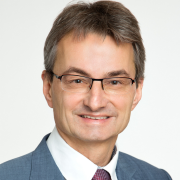IEEE MIPR 2023: Keynote Speaker
Prof. Hermann Hellwagner is a keynote speaker at IEEE MIPR, 30th August – 1st September 2023.
Title: Advances in Edge-Based and In-Network Media Processing for Adaptive Video Streaming
Talk Abstract: Media traffic (mainly, video) on the Internet is constantly growing; networked multimedia applications consume a predominant share of the available Internet bandwidth. A major technical breakthrough and enabler in multimedia systems research was the HTTP Adaptive Streaming (HAS) technique. While this technique is widely used and works well in industrial networked multimedia services today, challenges exist for future multimedia systems, dealing with the trade-offs between (i) the ever-increasing content complexity, (ii) various requirements with respect to time (most importantly, low latency), and (iii) quality of experience (QoE). This situation sets the stage for our research work in the ATHENA Christian Doppler (CD) Laboratory (Adaptive Streaming over HTTP and Emerging Networked Multimedia Services; https://athena.itec.aau.at/), jointly funded by public sources and industry.
In this talk, I’ll explore one facet of the ATHENA research, namely how and with which benefits edge-based and in-network media processing can cope with adverse network conditions and/or improve media quality/perception. Content Delivery Networks (CDNs) are the classical example of supporting content distribution on today’s Internet. In recent years, though, techniques like Multi-access Edge Computing (MEC), Software Defined Networking (SDN), Network Function Virtualization (NFV), Peer Assistance (PA) for CDNs, and Machine Learning (ML) have emerged that can additionally be leveraged to support adaptive video streaming services. In the talk, I’ll present several approaches of edge-based and in-network media processing in support of adaptive streaming, in four groups:
- Edge Computing (EC) support, for instance transcoding, content prefetching, and adaptive bitrate algorithms at the edge.
- Virtualized Network Function (VNF) support for live video streaming.
- Hybrid P2P, Edge and CDN support including content caching, transcoding, and super-resolution at various layers of the system.
- Machine Learning (ML) techniques facilitating various (end-to-end) properties of an adaptive streaming system.

